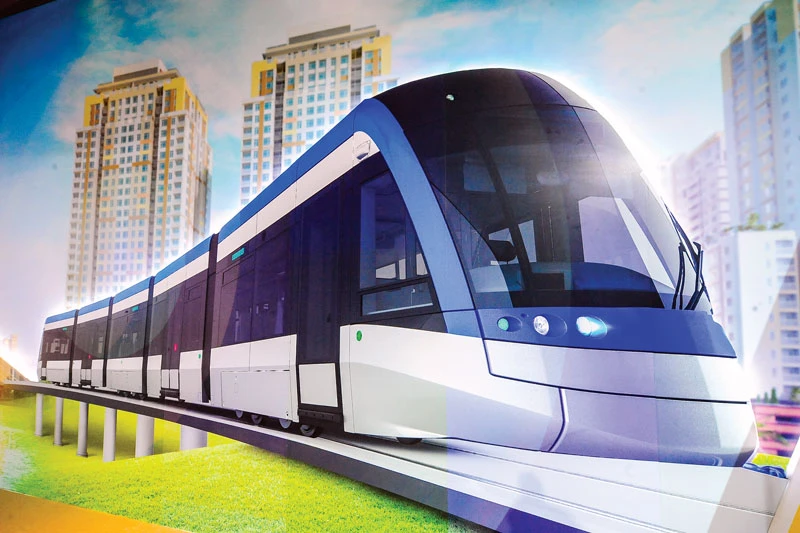
This will facilitate sufficient resources for sustainable development projects within the City. To discuss more details of this proposal, Saigon Investment spoke with Dr. Tran Du Lich, former Deputy Head of the Ho Chi Minh City National Assembly Delegation.
JOURNALIST: - Sir, the budget revenue of Ho Chi Minh City has continuously increased over the years but the rate of budget regulation from the Central Government has decreased. Is this a paradox?
Dr. TRẦN DU LỊCH: - Since after the issuance of Resolution No. 20 by the Political Bureau in 2002, for the development of Ho Chi Minh City until 2010, the budget was at 33% in 2003. But in following subsequent years, the budget law made some changes, so the ratio was slightly different. From 33% in 2003, it gradually decreased to 29%, 26%, 23% and finally to 18% as of now. On the other hand, HCMC budget revenue contribution to the general budget has been increasing, sometimes even more than 30% of the national budget, which causes the basic City investment source to remain always inadequate. For making large revenue contributions to the national budget, the City must be met with corresponding investment amounts, which are needed for infrastructure, transportation, construction projects for the development of the people and the City.
Of course, the Central Government provides support HCMC with loans as well. For example, for the East-West Highway project, Nhieu Loc-Thi Nghe water environment project, and the Metroline project. The City is also allowed to issue bonds, especially after Decree 93 was issued in 2001 on decentralized management of some fields in Ho Chi Minh City. However, in general, such regulations clearly do not meet the growing demand, and do not create motivation and are especially difficult to foster for long-term revenue for the City and the National budget. I think this matter needs serious consideration.
- The People's Committee of Ho Chi Minh City has prepared a proposal to adjust the percentage from 18% to 33%, for the next ten years from 2020 to 2030, to ensure that the City has enough financial resources to tackle its needs. What is your opinion about this proposal?
- I think that the rate of the budget regulation needs to be calculated. But the most important problem for Ho Chi Minh City is a stable rate for next five to ten years, and of course, it must be higher than the current 18%, in order for the City to have sufficient funds for spenditure for development projects. At the same time, besides increasing the budget, it is also necessary for the City to simultaneously be more proactive in generating more revenue, which would include reviewing the the total debt bonds that the City Government can borrow.
It is argued that in developing countries, central and local budget and expenditure are not like they are in Vietnam. In my opinion, the current budget divided between the Central Government and Ho Chi Minh City cannot be compared with any other country, because Vietnam's budget system is unlike anywhere else. However, a budget system that has no autonomy for the local government creates a mechanism for asking and giving and not enabling the local government to proactively increase revenue and take initiatives in spending. We often talk about increasing autonomy and self-responsibility for the local government, especially the role of the People's Council. But there is no separation of local budgets as local rights, and which budget the Central budget subsidies for localities under the national budget.
I repeat that this is the existence of Vietnam's public financial institution. Therefore, more than ten years ago, Ho Chi Minh City proposed an urban government model, in which the first factor was to increase the autonomy for the local government and decentralize the local government in terms of budget. There are two aspects here: one is the right to decide how to increase revenue, such as via fees, taxes, etc.; the other is the decision on spending, which eventually means a decisive role of the local government through the People's Council. This is the root of the problem. If this problem is not solved, it will be difficult for the City to proactively generate revenue. The common problem in the world today is that Cities are autonomous, and in this the most important is to have budget autonomy.
- In addition to the proposal to increase the revenue budget, is there any other source for development that has not yet been exploited?
- I think that Ho Chi Minh City and the Central Government should recalculate the organizational structure of the urban government, and in this context, increase decentralization, including decentralization of budget and some areas of public services. It must be resolved in such a way that it is easier to handle. Therefore, I support the City Government's proposal to increase revenue budget, and more importantly, increase autonomy and self-responsibility of the City Government in budget allocation. Autonomy here would mean increased revenue, exploiting more revenue sources and being able to make decisions in the matter of spending by City authorities. Of course, that mechanism must increase the supervisory role of the People's Council on revenue and expenditure and also increase supervision by the Ministry of Finance on key issues. Put simply, the role of the Government must not cater on donations, but increased monitoring and supervision, and increased self-responsibility of local authorities. These are basic things that must be done.
- Thank you very much!




















